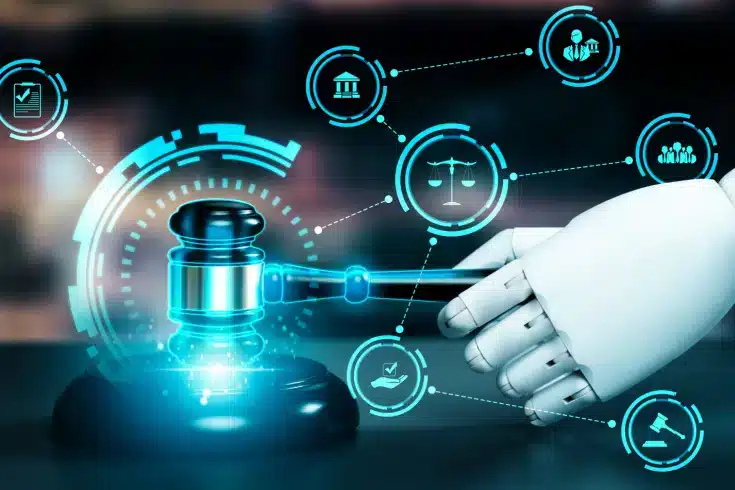Contracts Individual Engineers Should Prepare in Advance for Joint Ventures with Companies

Our firm, led by a former IT engineer turned attorney, provides legal consultation not only to corporations but also to engineers. One common scenario we encounter is when an individual, who has been working on a new business project with a company, finds that they are no longer receiving an adequate share of the profits. This typically occurs in situations such as the following:
- An individual engineer has been involved in the in-house development of a new system for a company that is not necessarily strong in IT from the beginning.
- The system in question is performing well and sales are increasing.
- The engineer has requested a share of the company’s stock or profit distribution based on sales, but the company has not complied.
In such situations, what should the individual engineer consider? Why do these situations occur in the first place, and how can they be prevented? We will explain these points.
Disputes Regarding Joint Ventures Can Be Prevented with a Contract
Firstly, to state the conclusion upfront, preventing such situations is actually quite simple. The answer is straightforward.
To prepare for such circumstances, it is advisable to conclude a ‘Joint Venture Contract’ in advance, which includes the following provisions.
That’s the idea. In a joint venture contract, for example, you might consider including the following provisions:
- The copyright for the system will be shared between yourself and the company
- A certain percentage of the sales will be distributed to you
- Provisions for stock transfer
Design these with the optimal balance and conclude them in advance. That’s the idea.
However, in reality, the conclusion of such contracts tends to be postponed, which is why the problems mentioned above tend to surface easily.
- What is the situation regarding rights when problems surface?
- What kind of policy should be adopted when designing a joint venture contract in advance?
- Why do problems tend to surface while the contract is still not concluded?
We will explain these points in order below.
Ownership of Program Source Code in Joint Ventures

When such issues come to light, the greatest ‘right’ that an individual engineer can assert against a company is copyright. The source code of a program is a ‘work’ subject to copyright. The ownership of the copyright to the source code follows the following rules:
- As a general rule, it belongs to the person who wrote the code.
- If the person who wrote the code is employed by a company or meets certain conditions, it becomes a ‘work made for hire’, and the copyright belongs to the company.
- If there is a provision in the contract regarding the ownership of the copyright, it follows that provision.
Therefore,
- As a general rule, the copyright belongs to the individual engineer who wrote the code.
- The individual engineer is not an employee of the company, so a work made for hire does not apply.
- The ownership follows the provision in the contract, but there is no ‘contract’.
From this, it would seem that the copyright belongs to the individual engineer. However, if this dispute were to go to court, the court may not necessarily make such a judgment.
For more information on whether a contract for system development can be established without a contract, please refer to the following article.
https://monolith.law/corporate/system-development-contract[ja]
Without a Contract, Decisions Can Become Unclear
Although not related to system development, there was a case where the copyright ownership was disputed between an individual designer who designed a monument to be installed at a station and the company that ordered the design. On May 31, 2004 (Heisei 16), the Tokyo High Court ruled based on the following points:
- No contract existed
- The monument was initially planned to be installed at the station under the company’s direction, and no other uses were anticipated
- The company had paid the individual designer for their work
Based on these points, the court recognized the transfer of copyright from the individual designer to the company.
In this way, when there is no written contract, whether or not the copyright has been transferred to the commissioning party is determined by exploring the reasonable intentions of the commissioner and the contractor based on various circumstances. In other words, it becomes a very “fuzzy” judgment, meaning there are no clear rules. For example, the question of “how is the payment for writing the source code made?” is generally handled as follows in these “fuzzy” judgments:
- If payment is made in the form of a monthly fee → It is considered as a fee for a total service including maintenance, and especially when the contractor is an individual, it is likely to be evaluated as a salary-like payment, affirming the transfer of copyright to the commissioning party
- If estimates are obtained each time for upgrades, etc. → It is easy to evaluate as a simple fee for creating that version, denying the transfer of copyright to the commissioning party
When an individual engineer is contracted by a company in a form like a “joint venture”, the remuneration is often paid in the form of a monthly fee, and as a result, there is a tendency for the transfer of copyright to the company to be easily affirmed. Moreover, at least from the perspective of the individual engineer, in the absence of a written document, it becomes difficult to assert that “the copyright is clearly mine”.
For more details on the ownership of the source code copyright, please refer to the following article:
https://monolith.law/corporate/copyright-for-the-program-source-code[ja]
What Should Be Stipulated in a Contract for a Joint Venture
The fundamental reason for such situations is the lack of a contract in advance. You might intuitively think that it’s not realistic to create a contract beforehand, but we’ll discuss that later. First, let’s explain what should be included in an ideal contract.
Provisions Regarding Copyright
As evident from the above, a contract should include provisions regarding copyright. From the perspective of an individual engineer, the biggest risk of conducting system development in a joint venture with a company is being “cut off” after the project becomes profitable.
In other words, even if you conclude a contract that states, for example, “20% of the sales revenue will be paid to the individual engineer,” you will not be able to earn any revenue if the contract itself is terminated. To prevent the termination of the contract, it is important to hold the “rights” on your side, and the most important of these rights is copyright. Regarding copyright, you should stipulate that:
- The copyright belongs to the individual engineer
- The copyright is shared between the company and the individual engineer
- The copyright belongs to the company, but the company cannot exercise or transfer it without the individual engineer’s permission
By setting such provisions, from the company’s perspective, if they “cut off” the individual engineer, they will not be able to continue the business, thus preventing being “cut off” in the manner mentioned above.
For a detailed explanation of the overall picture of IT systems and copyright, please refer to the following article.
https://monolith.law/corporate/internet-technology-system-copyright-problem[ja]
Provisions Regarding Consideration
Of course, provisions regarding consideration are also necessary. Not limited to these cases, when conducting a business jointly, it is more advantageous for the side that does not generate sales to receive distribution based on sales rather than profit. In other words, for example:
- The company will pay the individual engineer ●% of the profits from the business related to the system
- The company will pay the individual engineer ●% of the sales from the business related to the system
It is preferable to choose the latter. The individual engineer cannot accurately grasp the sales generated by the company, the amount of each expense, or whether that expense is truly for “that business.” Both earning sales revenue and paying expenses, and managing and supervising the personnel obtained with those expenses, are ultimately the company’s responsibility. Among these, sales revenue is probably the easiest to grasp. It is advantageous to receive payment calculated simply from what is easy to grasp.
Provisions Regarding Transfer of Shares
Furthermore, you can also seek a transfer of shares. However, in this article, we will omit the details, but it is practically difficult for an “individual engineer subcontracted to work on a joint venture” to demand a large number of shares, such as several tens of percent. If an outsider in such a position holds a significant number of shares, it becomes very difficult to receive investment from VCs or go public. You should negotiate within a realistic range, such as 5%.
Why Contracts Are Not Prepared in Advance

It is extremely disadvantageous for individual engineers to engage in a “joint venture” with a company without a contract that includes future payment considerations. It is important to prepare a contract in advance, but many people seem to find it difficult to properly prepare and conclude a contract in advance.
This is thought to be due to the difference in awareness of “business” between the company and the individual. To begin with, disputes related to such joint ventures often occur in the following chronological order:
- A company and an individual engineer agree to launch a new business, and the company commissions the individual engineer to develop a system. At this time, a reward is agreed upon, such as “300,000 yen per month,” for the individual engineer’s living expenses.
- The business becomes profitable, and the above reward is slightly increased.
- The business grows further, generating tens of millions or hundreds of millions of yen in sales for the company.
- At this stage, the amount the individual engineer receives, such as “500,000 yen per month,” becomes insignificant compared to the profit the company is making, and is also cheap compared to the amount another company would charge to take over the system.
- The relationship between the individual engineer and the company deteriorates.
From the perspective of the individual engineer, indeed, if they do not receive a monthly fee at stage 1, it will affect their livelihood. And at stage 4, indeed, the amount of “500,000 yen per month” in the above example is insignificant compared to:
- The profit the company is making
- The amount another company would charge to create the system
However, it is economically unfair to simply compare these. This is because:
- At stage 1, the company is making a preliminary investment by paying for the individual engineer’s reward and the salesperson’s salary for a business that may not generate sales.
- If another company had created the system, there would have been provisions for copyright transfer, and there would not have been a discussion about “profit sharing based on sales.”
In harsh terms, “If you received a risk-free payment for your work at a stage where it was uncertain whether it would be profitable, you are not entitled to demand profit sharing when it turns out to be profitable.” Court judgments often end up aligning with this value judgment and conclusion.
Summary
At a stage where it is completely uncertain whether a business will succeed, spending time on creating a joint venture agreement or bearing the cost of hiring a lawyer is indeed a “risk”. If the business ultimately fails, the time and cost invested become a “cost collapse”.
However, the basic structure of a business is that “those who take on risk, if things go well in the end, reap surplus profits”. For individual engineers, even at a stage where it is still uncertain whether they will make a profit, if they bear the “risk” to the extent of spending time and money as mentioned above, they can achieve better results if the business succeeds than if they had not taken on such “risk”.
Joint venture agreements are inevitably specialized. To prevent future disputes and secure the profits you should earn, it is important to create and conclude a contract that clarifies the contractual relationship, such as by consulting a lawyer at an early stage.
Information on Contract Creation and Review Services by Our Firm
At Monolith Law Office, we provide various services such as contract creation and review, leveraging our strengths in IT, Internet, and business law. We offer these services to our retainer clients and client companies.
For more details, please refer to the page below.
Category: IT
Tag: ITSystem Development





















